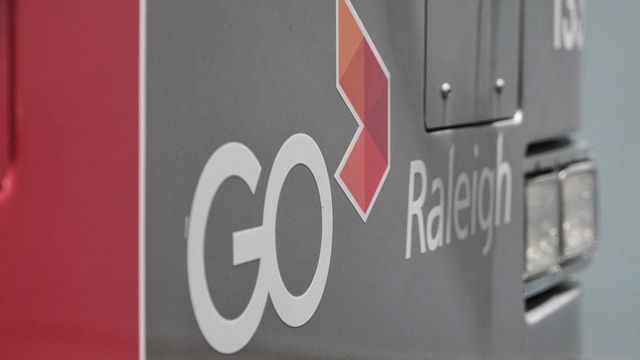Wake voters to decide on transit tax
Wake County voters will decide this fall if they want to raise local sales taxes by a half-cent to help pay for a $2.3 billion plan that expands public bus and train services.
Posted — UpdatedThat question will be the last item on the ballot for voters during early voting or on Election Day, Nov. 8.
Shoppers in Wake County currently pay 6.75 cents per dollar in sales tax. If the referendum passes, the county's sales tax rate would rise to 7.25 percent, so the tax on a $100 shopping trip would move from $6.75 to $7.25.
"We have to find a way to stem traffic before it gets so unbearable that we're really behind the eight-ball," county Commissioner Matt Calabria said.
Proponents of the plan point to the Triangle's population growth in recent years, citing statistics that show Raleigh, Durham and the surrounding area are growing by 63 people a day, which is adding to traffic congestion.
The Wake County Board of Commissioners voted unanimously in June to put the tax increase on the ballot. Voters in Orange and Durham counties approved similar sales tax increases in 2011 and 2012, respectively, for their own transit projects.
"We feel this is an unnecessary step in transit," said Paul Fitts, treasurer of the taxpayers association. "Instead of having 30-foot buses in north Raleigh that run vacant, figure out a way to bring in smaller buses. Take out the bigger buses, shore up the system that you have, then expand it."
Calabria noted that adding more service will make public transit more attractive, so people will use it more frequently.
"We are not an urban metropolis like New York or Chicago," Civitas Institute spokesman Jim Tynen said. "We need a decentralized transportation system."
Tynen's argument is echoed in a statement from the John Locke Foundation, which says the rail map in the transit plan is flawed because all of the lines run in and out of Raleigh, potentially making travel more time-consuming if one had to travel through a central point to get to other, outer Wake County towns.
"So, what about people who live in Knightdale but work in Wake Forest?" the statement asks.
Rindge points to the plan’s promise to add transit to all cities in Wake County and its bipartisan backing.
"I can’t think of a public policy issue that has such broad support. We have businesses working with environmentalist groups with the Home Builders Association," Rindge said. "That's unprecedented."
Bonds on ballot in Durham, Orange
Other area counties have bond issues up for a vote.
Durham County voters will decide whether to borrow $90.9 million for school construction, $44.7 million for library construction, $20.2 million for Durham Technical Community College facilities and $14.2 million for the North Carolina Museum of Life & Science.
In Orange County, voters will decide on whether to issue $120 million in bonds for school construction and another $5 million for affordable housing.
Related Topics
Copyright 2024 by Capitol Broadcasting Company. All rights reserved. This material may not be published, broadcast, rewritten or redistributed.






